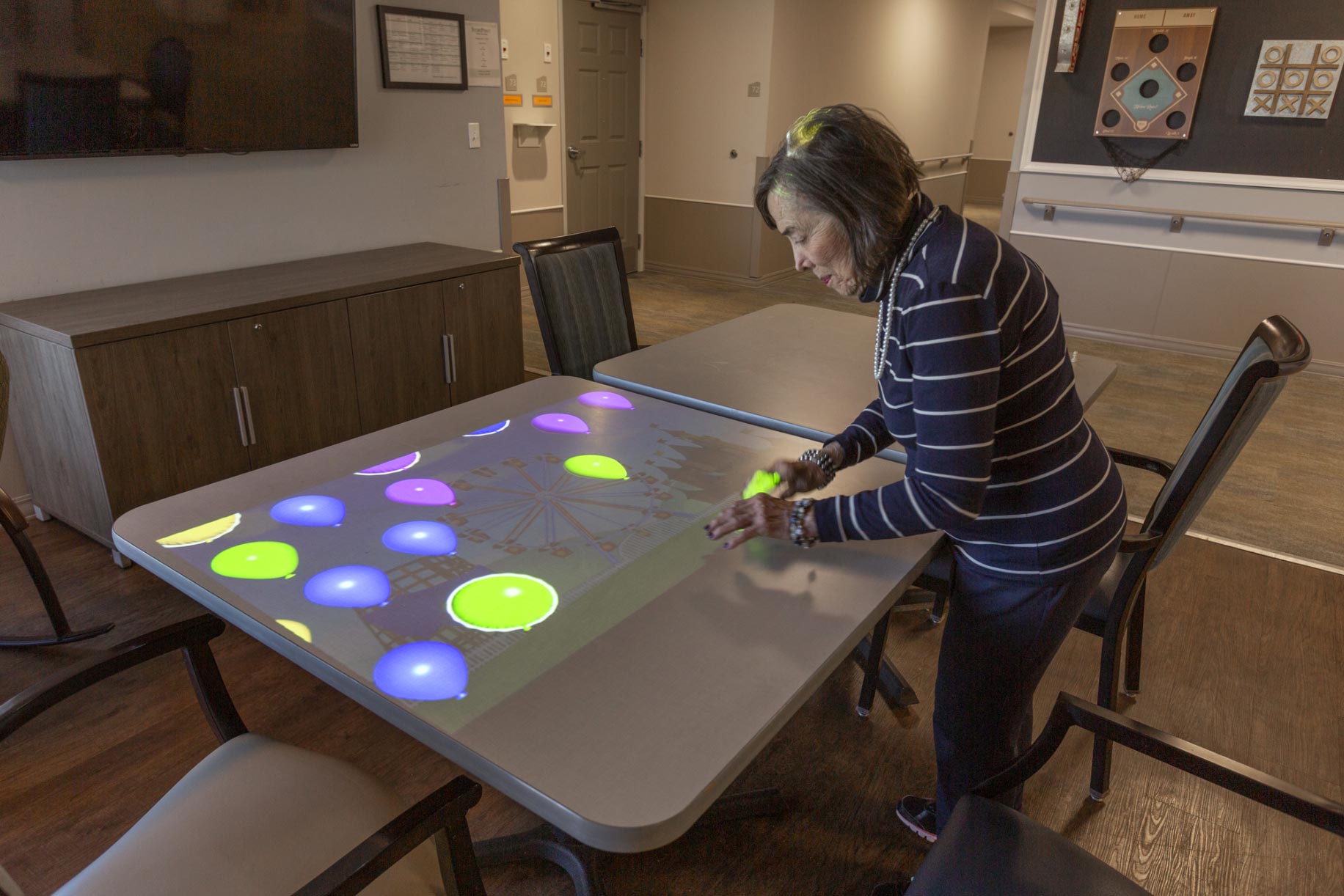Dedicated Professionals Giving Alzheimers Care Charlotte for Loved Ones
Dedicated Professionals Giving Alzheimers Care Charlotte for Loved Ones
Blog Article
Developing a Safe and Helpful Atmosphere for Alzheimer's Treatment
The production of a supportive and safe environment for people with Alzheimer's is vital in boosting their lifestyle. This includes not only physical adjustments within the home, such as lessening risks and integrating acquainted aspects, however additionally the execution of structured regimens and purposeful tasks that accommodate their cognitive needs. Furthermore, understanding the psychological and emotional dimensions of treatment can considerably influence their complacency and link. Exploring these complex methods can reveal critical understandings right into effective caregiving strategies that may change the daily experiences of both people and caregivers.
Understanding Alzheimer's Requirements
Often, people with Alzheimer's illness show a series of needs that call for tailored methods to care. As the problem proceeds, cognitive decline manifests in numerous means, affecting memory, reasoning, and even the capability to perform day-to-day tasks. Caregivers have to identify these advancing demands to supply appropriate support and ensure a greater high quality of life for those influenced.
One essential element of understanding Alzheimer's requirements is identifying the value of regular and familiarity. Individuals often discover convenience in well established patterns, which can reduce stress and anxiety and complication. Caregivers should make every effort to develop structured everyday schedules that incorporate meaningful activities straightened with the individual's interests and abilities.
In addition, efficient interaction is paramount. People with Alzheimer's may have a hard time to reveal themselves or comprehend intricate language. Caretakers ought to employ straightforward, clear language, use non-verbal cues, and technique active paying attention to promote understanding and connection.
Last but not least, psychological and social demands can not be ignored. Providing opportunities for social interaction and preserving connections can significantly enhance emotional health. Caregivers must encourage interaction in community tasks or family gatherings, advertising a feeling of belonging and function. Recognizing these diverse demands is crucial for producing a helpful treatment environment.
Creating a Safe Home
Developing a safe home for individuals with Alzheimer's disease is essential to lessening threats and promoting freedom. Make certain that pathways are clear and well-lit, as correct lighting decreases disorientation and enhances movement.
Incorporating adaptive functions is likewise critical. Set up grab bars in shower rooms and near stairways, and think about utilizing non-slip mats in damp locations. In addition, utilizing contrasting colors for wall surfaces and floors can assist in distinguishing rooms, aiding to mitigate confusion.
Experience is necessary for individuals with Alzheimer's. Personalizing the environment with familiar things and photographs can reinforce a sense of belonging and safety and security - Alzheimers Care Charlotte. It is additionally beneficial to have a designated area for day-to-day tasks, such as analysis or crafting, which can supply structure to their day
Finally, carrying out a secure outdoor room permits risk-free exploration while getting in touch with nature. By attentively developing the home setting, caregivers can dramatically boost the high quality of life for people coping with Alzheimer's disease.
Enhancing Communication Skills

Non-verbal communication, consisting of face expressions, gestures, and touch, plays an important role in conveying compassion and understanding. Preserving eye get in touch with and a tranquil disposition can boost the convenience check this site out degree of the person, advertising a sense of safety.
Moreover, it is vital to exercise energetic listening. This entails being completely existing, showing perseverance, and allowing the individual to reveal themselves without interruption. Repeating may be required; caregivers must be prepared to take another look at concerns or subjects, as people with Alzheimer's might battle with memory recall.
In addition, making use of aesthetic help or signs, such as photographs or acquainted items, can help with acknowledgment and engagement. Eventually, boosting communication abilities has to do with developing trust and creating a setting where individuals really feel heard, valued, and recognized, thus enhancing their top quality of life.
Encouraging Social Communication
Fostering meaningful social interactions can significantly boost the wellness of individuals with Alzheimer's illness. Involving with others not only assists fight sensations of seclusion but also promotes cognitive function and emotional health. Structured social tasks, such as group arts, video games and crafts, or songs treatment, create chances for homeowners to link with peers and caregivers, which can result in improved mood and reduced anxiousness.
Creating a welcoming environment that motivates socializing is important. This can be attained by preparing common areas that facilitate interaction, such as comfortable seating areas or activity areas. In addition, incorporating familiar and culturally pertinent activities can spark memories and motivate participation, permitting people with Alzheimer's to really feel more connected to their past experiences.
Moreover, caregivers should be educated to recognize and promote social interaction amongst citizens. By focusing on social interaction, we can dramatically enrich the lives of those living with Alzheimer's, cultivating a feeling of community and belonging.
Sustaining Caretaker Health

To support caregivers, organizations must supply normal training and educational sources to boost their understanding of Alzheimer's disease and caregiving methods. Giving Read Full Article access to break treatment services permits caretakers to take needed breaks, lowering anxiety and tiredness - Alzheimers Care Charlotte. Additionally, fostering a neighborhood through assistance groups can assist in psychological sharing and the exchange of practical recommendations amongst caregivers, creating a network of common assistance
Mental wellness sources, such as therapy services, can additionally be crucial in attending to the emotional toll caregiving can take. By prioritizing caretaker health, we create an even more sustainable caregiving environment that not only profits the caretakers themselves however likewise improves the general top quality of care gotten by people with Alzheimer's. Ultimately, supporting caretakers is a vital component in cultivating a effective and compassionate treatment setup.
Verdict
In verdict, the creation of a helpful and risk-free atmosphere for individuals with Alzheimer's is necessary to boosting their high quality of life. By prioritizing safety with thoughtful layout, fostering emotional well-being with acquainted aspects, and promoting engagement via structured regimens, caretakers can considerably affect the general experience of those influenced by this condition. Supporting caregiver wellness is crucial, as it eventually adds to a much more compassionate and effective treatment environment.
Rep might be necessary; caretakers should be prepared to revisit subjects or questions, as people with Alzheimer's might battle with memory recall.

Report this page